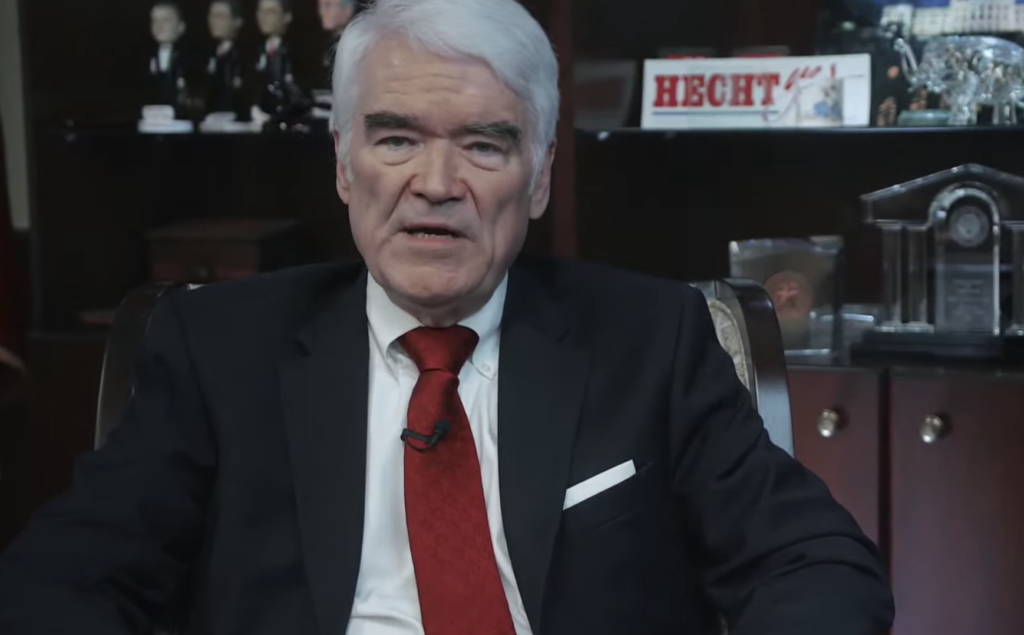
Zoom court hearings in Texas are here to stay. A backlog of thousands of jury trials caused by Covid-19 must be addressed. Access to justice for the poor must be improved. Racial prejudice – and the perception of bias – is a “disease” in the Texas justice system.
Texas Supreme Court Chief Justice Nathan Hecht delivered his State of Judiciary address to a joint session of the Texas legislature Tuesday by live video.
Hecht’s message was clear: The Texas judicial system is strong and adapted to the conditions and restrictions caused by the pandemic exceptionally well, but significant challenges remain.
“The people of Texas can take deep pride in their judges,” he said in his 26-minute address. “They have stood to the historic challenges of the Covid-19 pandemic. The courts are open and dispensing justice.”
Hecht said that remote court proceedings have “allowed courts to continue to process cases with some efficiency while minimizing health risks to participants.” He said more than 1 million state court hearings that involved more than 3.5 million participants have taken place via Zoom during the past year and that 35 virtual jury trials have been conducted.
“Remote proceedings achieve important efficiencies,” the chief justice said. “They save time and money, sparing lawyers, parties, and witnesses from having to go to the courthouse for every hearing.
“And here’s a benefit we didn’t expect,” he added. “Lots of people involved in court proceedings often find it impossible to attend. They can’t afford to miss work, arrange for childcare, and get transportation to go downtown and sit at the courthouse waiting for hours to be heard. So they just don’t go; they default. But with remote proceedings, ‘going to court’ is as easy as clicking on a link or dialing a number on a smart phone.”
The result, Hecht said, is that participation rates in high-volume courts went from 80% no-shows prior to the pandemic and Zoom hearings to an 80% show up rate.
The chief justice said the remote hearings are also broadcast live on YouTube, which means anyone may watch, which increases transparency and accountability.
Of course, the big problem Texas judges face is a backlog of jury trials.
Hecht, who is in his 40th year serving as a judge in Texas, said state courts conduct about 9,000 jury trials annually. During the pandemic, there were only 239 jury trials.
“More backlogs will come, with jury trials that courts must work through, and an expected surge in new case filings held off during the pandemic,” he said. “With only current resources, we estimate it may take three years to completely catch up. This is unacceptable, and I have asked the legislature for increased funding for retired and former judges to help us move more quickly.”
The chief justice said that the state continues to struggle with meeting the legal needs of low-income Texans.
“The pandemic has only sharpened these needs,” he said, noting that he has asked for an additional $4 million in funding for legal services for the poor. “We cannot allow access to justice for the very poor to falter just when they need it most. And we can expect that as criminal jury trials resume, the need for funding indigent criminal defense required by the Constitution will also increase. I urge the Legislature to fully fund all these needs.”
Hecht also said that racism and the perception of racial bias in the Texas courts is “chronic” and “cannot be ignored.”
“Amidst the pandemic, we have been reminded, again, that the justice system faces a far worse disease than Covid-19, a disease that is not novel but all too chronic and familiar: the disease of racial prejudice,” the chief justice told legislators. “Outcries last summer charged that the justice system is not fair, and just as importantly, not perceived to be fair.
“The charges cannot be ignored,” he said. “They demand self-examination and response from all who serve justice. Texas courts are taking a hard, clear look at themselves, and we will keep doing so. We will gather data to determine how the justice system is working in fact. We will encourage better training of judges.
“We will work to improve the public trust and confidence in the courts that is absolutely essential to the administration of justice,” Hecht said.
